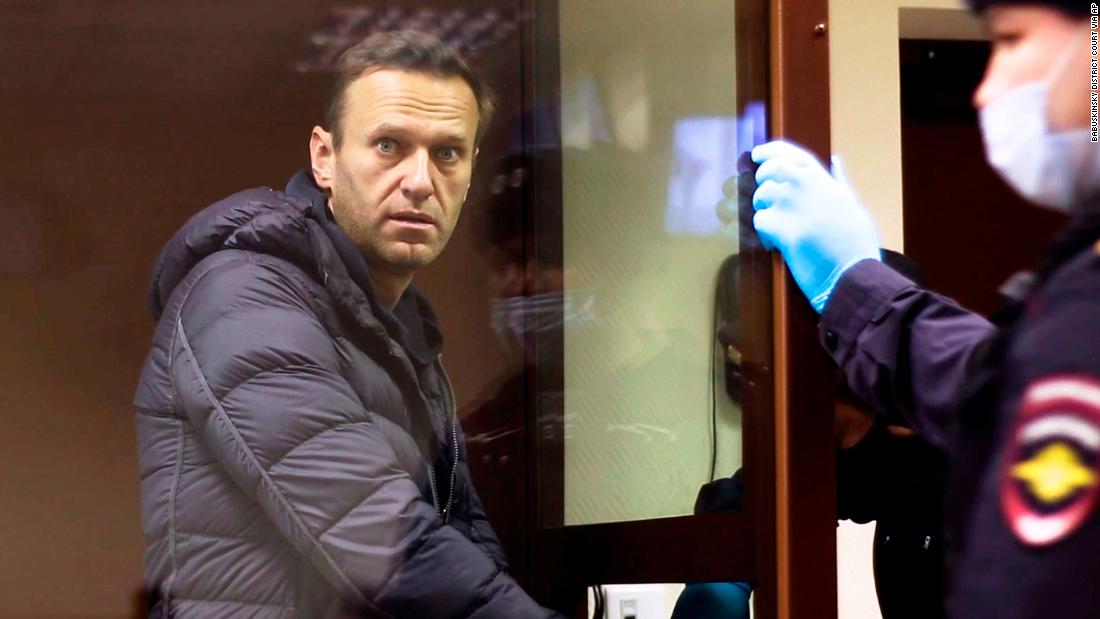
Navalny had previously survived an assassination attempt by poisoning from the Russian government which it denies, and then recovered in a safe foreign country, so why would he go back to Russia?
For many observers, there was just no logic to him going back to the country on January 17 to face almost inevitable arrest.
However, what they may not understand is what happens inside the mind of a person like Navalny who decides to speak truth to power.
Like Navalny, I, too, returned home to Zimbabwe in February 2017, after six months in exile in the United States.
Robert Mugabe, the brutal dictator in Zimbabwe, had threatened, jailed, and banished me from my homeland.
For months, I had inspired, via social media, one of the largest citizen-driven non-violent protest campaigns against corruption, injustice, and poverty in 20 years.
#ThisFlag citizen's movement had shut down the entire country by simply inviting ordinary people who were rightfully scared to protest on the street, to instead stay at home and boycott work and school for just one day.
Mugabe was shaken by the success of the campaign. His response - hunt down and silence us. I was subsequently arrested and charged with attempting to overthrow the government.
I was scared for my family's safety, so soon after my release from jail, I escaped with them.
Like Navalny, I eventually decided to return home and many people did not understand why.
My escape to safety from Mugabe after what we had achieved was not the victory I envisaged.
Though necessary at that moment, our escape delivered something that dictators crave. They want to be feared, and nothing cements that more than running from them.
When news of Navalny's poisoning and evacuation from Russia broke, it drew support and empathy for his campaign of exposing Putin's misgovernance. Inadvertently, however, it also further instilled the fear of Putin into those who oppose him.
As I hid from Mugabe, I came to terms with the reality that I had become more than just a regular citizen. I now represented the very idea of boldly speaking truth to power. Navalny understood this too.
He considered that the preservation of self over the mission of challenging Russian President Vladimir Putin's injustice was no longer an option.
Arrested at the airport in Harare, I had no idea what the cost of that decision would be on me and especially my family.
Truthfully, I still wonder if I made a mistake by going back. However, at the time I was more convinced that not returning would have been an even greater mistake.
The internal battles of those who walk this kind of journey, reveal more than the logical decisions that a person in danger must take.
Just as dictators love to be feared, democracy and freedom activists hate to give dictators the comfort of believing they are feared.
The thought that Mugabe and his cronies basked in the propaganda glow of how I feared them was maddening. The very reason I challenged them in the first place was because I had lost all sense of fear of Mugabe.
Not returning home for Navalny probably felt like handing Putin victory and in the process deflating his movement. The importance of Navalny's stand is that he carries on his shoulders the hopes of freedom for millions oppressed by Putin's dictatorship.
Whilst one person cannot fight the battle and win, the nature of the assignment of speaking truth to power requires that the face of such a movement continues to inspire those in the trenches and those still on the side-lines, by displaying courage through being present to face the beast on the battleground.
The sheer weight of this public expectation at whatever cost is an immensely difficult and conflicting one to bear no matter how courageous one may be.
The flip side of escaping Mugabe in 2016 was the deep disappointment of those who had publicly and privately supported me.
Rightly or wrongly, they felt I had let them down and the backlash was horrible, to say the least. On social media I was called a 'sellout' whose 'plan' all along was to gain the sympathy of Western nations. I was also called a coward for abandoning my courageous stand.
Admittedly, returning home for me was partly about disproving the notion that I was a coward. I didn't have to prove it, but the pressure was tormenting.
The more important reason I returned, however, was to send a message simultaneously to both dictator Mugabe and the people of our nation, that a new generation of freedom seekers was no longer prepared to run from the regime.
Navalny's return was more than about proving his bravery. It's about the genuine belief that Putin's regime must be challenged and democratically dismantled. It's about his understanding of the grave responsibility to keep an idea alive that ignites hope and creates a pathway to freedom.
There are a few people in the world who choose the kind of work that Navalny has committed his life to.
For those of us who do take it on, there comes a moment when you realize that destiny chose you to be a once in a generation torchbearer for the freedom of a people.
That realization alone becomes what South African former President Nelson Mandela defined in his iconic speech at his treason trial in April 1964 as "an ideal for which I am prepared to die."
"Opinion" - Google News
February 09, 2021 at 08:40PM
https://ift.tt/3p8gDcm
Opinion: Navalny's stand shows Putin a new generation of freedom seekers are no longer prepared to flee - CNN
"Opinion" - Google News
https://ift.tt/2FkSo6m
Shoes Man Tutorial
Pos News Update
Meme Update
Korean Entertainment News
Japan News Update
No comments:
Post a Comment